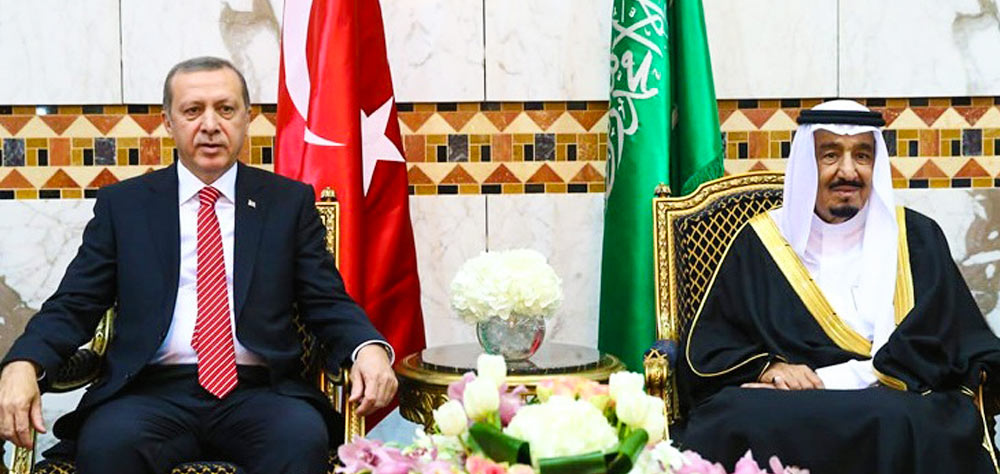Alwaght-The reverberations of the Astana talks on restoring peace in Syria continue to be felt across the West Asia region with tensions reported between Saudi Arabia and Turkey.
The two-day international meeting on the Syrian settlement ended in the capital of Kazakhstan on January 24 with the participation of a number of delegations, including armed opposition, the Syrian government and the three countries facilitating the meeting, namely Russia, Iran and Turkey.
According to a joint statement from the three states following the talks, the countries decided to establish “a trilateral mechanism to observe and ensure full compliance with the ceasefire, prevent any provocations and determine all modalities of the ceasefire.” They also reiterated their determination to fight jointly against ISIS and Fatah al-Sham, formerly Al Nusra Front and to separate them from armed opposition groups.
The results represent a practical step forward in consolidating the ceasefire which began to be implemented in the country last year. Therefore, the Astana meeting is potential turning point in international efforts to end the war in Syria and a blow to countries which continue to back Takfiri terrorists in the country especially Saudi Arabia.
Saudi Ambassador to Turkey dismayed
In a recent interview with the BBC, the Saudi Ambassador to Turkey Adel Serajedin Merdad was quoted as saying that: "Turkish president Reccep Tayyip Erdogan had all along been insisting on the overthrow of Syrian President Bashar al Assad as the only solution to the country's crisis but now Turkish officials led by Erdogan have dropped this demand which was once its red line on the Syrian crisis."
Merdad claimed that Turkey is attempting to have common stances with Russia and the Israeli regime as a way of protecting its interests and escaping the internal crises it faces.
The envoy further boasted that Riyadh assisted Erdogan in his rise to Turkey's presidency adding that Riyadh continued to support Ankara and that Saudi Arabia was the first country to declare its support for Erdogan's government following last July's failed coup attempt.
The Saudi envoy expressed regret that Turkey has now branded Syrian people's “uprising” as armed opposition adding that Ankara authorities have destroyed the 'gains' they had made in Syria. Merdad said Turkey now must take responsibility for the death of civilians killed in the Syria war and the ensuing refugee crisis.
Meanwhile Saudi authorities have claimed that the above statement attributed to Merdad is false.
On Tuesday, the Saudi Embassy in Ankara said Merdad had not made any statement whether to the BBC or any other media outlets in recent months.
Turkey moving against Saudi interests
Whatever the case, one thing is certain, Saudi-Turkish ties will be negatively affected by the just concluded talks in Astana whose outcome was not at par with Saudi objectives.
Turkey and Saudi Arabia jointly opposed President Assad since the start of the Syria conflict almost six years ago. However, Turkey’s recent proximity to the Iran-Russia axis meant that Ankara has gradually distanced itself from Riyadh. The Saudi authorities feel their perceived ally, Turkey, has sidelined them and embraced countries considered to be foes.
This state of affairs has angered Riyadh and led to the tirades by the Saudi envoy in Ankara against Turkish authorities including President Erdogan.
The Saudi regime is feeling increasingly isolated especially considering that Riyadh once played a leading role in the Syria file. However, Turkey now seems to be managing the armed groups in Syria and therefore, attacks by armed opposition groups targeting Fatah al Sham Takfiri terrorist group are expected to continue as the Saudi-Turkey tensions escalate and become more severe.
In any case Riyadh and Ankara have ideological differences as Turkish government is closer to the Muslim Brotherhood while Saudis have in recent years fought against the reemergence of the Brotherhood across the region. The Ottomans historically opposed the extremist Saudi-Wahhabi brand of Islam while the contemporary Turkey founded by Mustafa Kemal Ataturk continued to ignore the Saudis for decades.



























